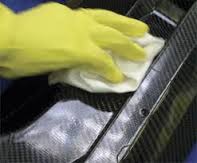 In the simplest described definition, a drying agent, as it pertains to industrial and chemical processes, is a term given to a chemical that works to remove water from a compound that is currently in solution. A compound that has been absorbing water for too long, or for an extended period of time, can become contaminated. Therefore, the application of a drying agent can prevent any contamination from happening by actively drying out all excess water. Examples of drying agents in use would be for food or electronics. In order for food to be preserved for a long period of time, a drying agent will be used in order to eliminate all liquids from the food, which would work to decay or spoil the food much quicker if it were not completely dry. Concerning electronics, it is no secret that water can corrupt and dismantle electronic components when immersed onto an electronic device (as many cell phone users already know, with much reluctance). A drying agent will immediately dry an accumulation of condensation or a mass of water on electronic equipment.
In the simplest described definition, a drying agent, as it pertains to industrial and chemical processes, is a term given to a chemical that works to remove water from a compound that is currently in solution. A compound that has been absorbing water for too long, or for an extended period of time, can become contaminated. Therefore, the application of a drying agent can prevent any contamination from happening by actively drying out all excess water. Examples of drying agents in use would be for food or electronics. In order for food to be preserved for a long period of time, a drying agent will be used in order to eliminate all liquids from the food, which would work to decay or spoil the food much quicker if it were not completely dry. Concerning electronics, it is no secret that water can corrupt and dismantle electronic components when immersed onto an electronic device (as many cell phone users already know, with much reluctance). A drying agent will immediately dry an accumulation of condensation or a mass of water on electronic equipment.
Although in almost every instance, a drying agent is used to benefit a product, if used excessively, it could potentially harm a product. Drying agents do not only absorb water, it can also absorb other types of compounds. This is why it is extremely important that an industrial organization preparing to use a drying agent has complete understanding and control of the drying agent about to be put into use. Otherwise, the compound that is brought together with the drying agent could wind up being destroyed. Fortunately, there are already determined processes and steps to take to ensure that too much of a drying agent will not be used. That is why it has been stated that, whomever uses a drying agent, should have a complete understanding of what is about to be performed to ensure total success.
To know when the drying process is complete, the solution will become translucent. In addition, the drying agent will desist clumping, and will actually float in the solution. If the mixture is still milky, the drying process is not complete, and you should allow it to continue until the milky look has completely disappeared.
More information regarding drying agents can be provided to you by organizations that support chemical and industrial processes. As you probably figured out from the information provided above, utilizing a drying agent should only be performed if the process is perfected. Otherwise, disaster will become the most likely result. ore simplified for your industrial organization. Therefore, if you feel unsure about performing the process, all you have to do is reach out and ask Ecolink for assistance.














